#IndustryNews
Report: GM Needs More Manpower, UAW Suggests It Stop Drug Testing
Flint Truck Assembly is the only standing reminder of General Motors’ formerly impressive commitment to Genesee County, Michigan. Other representations include a myriad of crumbling factories that were closed decades ago and the area’s preponderance of vintage, high-mileage Buicks retained out of utility after the employment situation turned sour. Saying that the region has fallen upon hard times would be a grotesque understatement.
But that doesn’t mean there still aren’t still automotive jobs to be had. Despite GM reducing its Flint workforce from roughly 80,000 in the mid-1970s to fewer than 10,000 in 2010, the truck plant is still operational and reportedly looking for 450 temp workers to help fill in scheduling gaps for the 5,100 union-represented staffers it currently employs. Unfortunately, it’s been having trouble finding enough bodies, though the UAW has a solution. It believes that General Motors should stop drug testing, especially now that Michigan has legalized recreational marijuana use.
The Great Used Car Buyup of 2021
With automakers having a difficult time keeping production schedules thanks to COVID restrictions nuking demand and upending supply chains, 2021 arrived with plenty of problems. Desperate to replenish fleets they had sold off while everyone was locked indoors, rental agencies went on a used car buying spree. But it wasn’t just rental fleets that needed to be restocked, dealerships are also finding themselves with fewer models on the lot than they’re accustomed to — which is a bad position to be in when surveys have revealed consumers are now willing to pay stupidly high prices for automobiles.
They’re reportedly going to great lengths to acquire used cars as the great buyup of 2021 continues.
Driving Dystopia: German Automakers Keep Reimagining Vehicle 'Ownership'
Volkswagen recently announced that it plans on making massive amounts of money by introducing more vehicles with over-the-air updates (OTAs), many of which will be able to store and transfer personal profiles so that users can effectively just rent their vehicles for eternity. Additionally, VW has suggested future models will have ability to lock features (that have already been physically installed) behind a paywall that users can unlock via subscription services — things like heated seats, satellite navigation, or even the vehicles top speed.
“In the future, our customers will buy, lease, share or rent cars just for a weekend, and we can use software to provide them with whatever they need over the air,” VW brand’s sales chief Klaus Zellmer said during an online presentation held on Tuesday. “The ID family has been designed for further development, with OTA updates to improve the software’s performance and tailor it to our customers’ needs.”
Return of the Apple Car: Almost There or Vaporware?
After years of restarting and then killing its electric vehicle program, Apple has again signaled that it’s once again serious about developing something for your driveway. Ulrich Kranz, former Canoo CEO and brains behind the BMW i-cars, has reportedly been picked up by the company for its automotive team.
Apple has yet to verify the hire and Kranz hasn’t updated his LinkedIn profile. But there have been multiple reports that he’s been been taken aboard specifically for his EV expertise. Unless social networking platforms are becoming passé (fingers crossed), it’s likely that the tech company wanted to wait until it could make an official announcement accompanied by an update on development.
That’s assuming Apple is still doing a car, however.
Senate Approves Bill Injecting Cash Into Semiconductor Industry
Apologies for all the semiconductor news. But it’s the topic of the day, with the United States Senate recently approving $52 billion in emergency spending to help bolster domestic chip production and another $190 billion for R&D programs.
Passing the vote (68-32) under the premise that boosting localized chip production would help prevent domestic automakers from having to cut corners, the Senate is also suggesting the funding could give the U.S. a competitive advantage against China. The Communist Party of China (CCP) has opposed the U.S. Innovation and Competition Act (formerly the Endless Frontier Act), with statements released from the National People’s Congress (NPC) demanding the legislation be halted immediately.
Recycling EV Batteries Might Soon Become Booming Domestic Industry
Having covered the White House’s incredibly expansive and costly infrastructure plan, specifically as it pertains to transitioning the entire nation toward alternative energy vehicles, we’ve often found ourselves asking questions. Puzzlers include wondering whether or not consumers actually want this change and how can we possibly expect to pay for this when we’ve already starting conjuring money out of thin air for other government programs. We don’t even know where we’re supposed to get the rare-earth minerals necessary for production when mining them is heavily regulated in the United States and hardly an endeavor that would be considered kind to the natural landscape.
Last week proved that we weren’t entirely alone in pondering how all of this greenification is supposed to work.
Used Car Prices Have Increased 30 Percent
We’ve been covering the staggering increase of automobile pricing all year, starting with the second-hand surge created by rental industries sucking up used models to replace all the vehicles they dumped during the pandemic. A year of suppressed demand and prolonged restrictions absolutely crippled supply chains and placed the automotive sector in an extremely difficult position going into 2021. We wish we could say things were improving but the most heartening news we’ve come across was the possibility that select manufacturers might soon have a line on semiconductor chips — hopefully encouraging new vehicle production.
But the used market is still heading into uncharted waters. According to data collected by CarGurus, the typical price for a used automobile increased by about 30 percent against this time last year. Though more worrying is how much of that spike is consolidated within the last 90 days.
Safety Groups Downgrade Tesla Models for Dumping Radar
The National Highway Traffic Safety Administration is downgrading the Tesla Model 3 and Y following the company’s decision to remove radar from its advanced driver-assistance suite. We wrote about it, noting that the change actually removed several features from the affected cars and introduced the activation of another creepy, driving-monitoring camera.
While the latter aspect warranted the most cursing from your author’s side of the laptop, it’s the former that’s seeing the lion’s share of debate among groups advocating for vehicular safety. Everyone wants to blame Tesla’s overreliance on cameras as the thing contributing to high-profile crashes when there’s nary a vehicle on this planet that’s truly capable of driving itself. But that hasn’t stopped the NHTSA from slapping affected Tesla models into their own category, noting that they lack several functions it deemed important for safety. It’s all relative, considering there are millions of vehicles on the road that don’t have any advanced driving aids to speak of and heaps of evidence that electronic nannies don’t always function as intended. But it’s earning Tesla bad publicity as it gets dinged by increasingly more safety groups.
Driving Dystopia: Tesla Activates Driver Monitoring Protocols
There’s a small camera just above the rear-view mirrors installed in newer Tesla models. If you haven’t noticed it before, it wasn’t of any particular relevance. But it certainly is now.
Tesla has decided to activate driver monitoring protocols in an effort to avoid liabilities whenever Autopilot fails and motorists unexpectedly find themselves merging off a bridge. After rummaging through the wreckage and collecting errant body parts, investigators can use the vehicle’s camera data to see what was happening moments before the car hurled itself into the ravine. If it turns out that the driver was totally alert and did their utmost to wrangle the vehicle as it went haywire, a colossal payout for the surviving family is assured. But if that camera catches them slipping for a microsecond, the manufacturer has all it needs to shift the blame onto the deceased driver.
VW Group Shoots Down $9 Billion Lamborghini Bid
Lamborghini has changed hands more than a few times since it was founded as a way to show up Ferrari in 1963. It’s currently owned by Volkswagen Group, which recently made it clear that it has no intention of selling the brand.
The Anglo-Swiss Quantum Group reportedly made an offer to buy the raging bull from VW for an appetizing €7.5 billion ($9.16 billion USD), including a five-year deal where it would continue sourcing parts from Audi — as there’s basically no way around it without nuking the present lineup. The proposal was made earlier in the month with Volkswagen Group giving the newly established holding company a prompt no.
QOTD: Should the U.S. Produce Its Own Semiconductor Chips?
Now that it’s effectively too late to avoid a crisis, the United States has begun asking itself whether or not now is the time to put into motion a plan that will eventually lead to the nation manufacturing its own semiconductor chips. As you’re undoubtedly aware, the automotive sector has taken a beating as Asian-based supply chains are experiencing what can only be described as unprecedented demand. But they aren’t building enough to satisfy everyone and the local markets are taking precedent.
U.S. Commerce Secretary Gina Raimondo proposed a $52-billion solution on Monday that would cram fresh government funds into production and research that could result in seven to 10 new U.S. factories. But that’s just to get the ball rolling on an industry that will take several years to mature, leaving some to wonder whether the country should even bother.
Lordstown Motors Cuts Production Estimates By More Than Half
One of the biggest contributors to EV skepticism are the companies associated with furnishing the technology. While brands like Tesla have unquestionably proven that there’s a market for electric cars, there’s a cadre of startups that seem built on a foundation of falsehoods and do nothing other than vacuum money to feed hypothetical products that never seem to manifest in the physical realm. But the problem is that it’s incredibly difficult to distinguish between them when even Tesla participates in making wild promises it clearly has no intention of keeping and is heavily dependent on regulatory issues favoring EVs — specifically via the sale of carbon credits.
Lordstown Motors has occupied a gray area between the extremes. However, it recently cut this year’s production targets by more than half, warranting some legitimate concern.
Report: Semiconductor Chip Shortage Could Affect 4 Million Vehicles
The semiconductor shortage marches onward with no real end in sight. Supply chains remain a tangled mess following a year of pandemic-related restrictions and demand remains ridiculously high as we unnecessarily network and digitize increasingly more consumer goods (e.g. toothbrushes).
Though this website is really only concerned with the pace of automotive factories — most of which seem operating at the industrial equivalent of driving on the shoulder with the hazards on. The global number of vehicles lost in announced shutdowns and line slowdowns as a result of chip shortages is swiftly closing in on 3 million and estimates have it continuing on unabated for the rest of 2021.
Good Luck Getting Rental Cars This Summer
As you might have noticed, or heard from us, rental agencies have been hoovering up new and used vehicles to offset the 2020 selloff that stemmed from everyone mysteriously canceling their travel plans that year. Returning to normal, which is something anyone who didn’t assume the world was ending could have predicted, has resulted in increased pricing for vehicles — regardless of whether you’re renting or buying.
Rental companies typically try to play the vehicle market like the rest of use stocks or (if you’re hip) crypto. Buy low, sell high. But 2021 has created a perfect storm of increased demand coming after a long stretch of nothing and an auto industry that doesn’t seem to be capable of building cars thanks to all sorts of component shortages. But it’s no sweat for the big rental agencies because they’re now able to charge just about whatever they want. They’re keeping vehicles in their fleets longer, making more money off them, and selling them back at elevated prices.
General Motors Asks Government to Change Rules on EV Tax Credits
General Motors is asking the federal government to reset the federal EV tax credit system, effectively requesting a personal favor. As one of the first manufacturers to get an electric vehicle to market that people actually wanted to buy, GM hit the 200,000 cumulative EV sales cap in 2018. While customers could still get money back through April of 2020, the automaker exhausted its allotment of $7,500 subsidies before most of its rivals.
Now it wants to see the government press the reset button on the program under a pretext of fairness. GM executives are claiming that companies investing in electrification shouldn’t be handicapped by not getting additional money from taxpayers. It seems anything but fair, frankly. Though it should be said that all-electric models have a poor track record in terms of profitability. The Chevrolet Bolt certainly didn’t make any money, however, GM CEO Mary Barra has said new versions of the model will be capable of turning a profit.



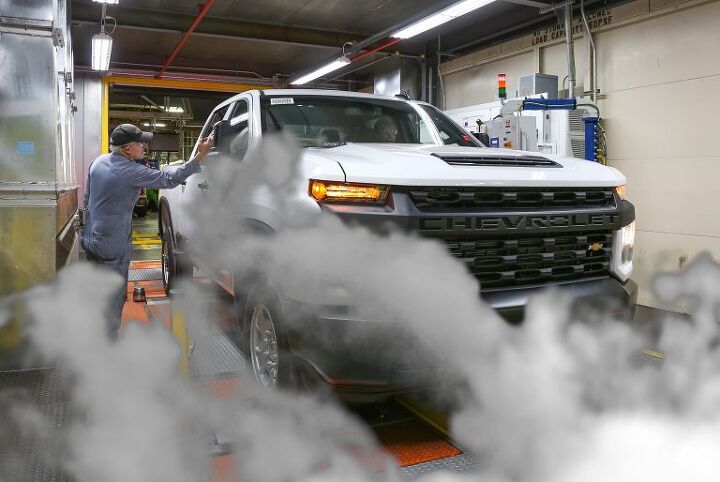




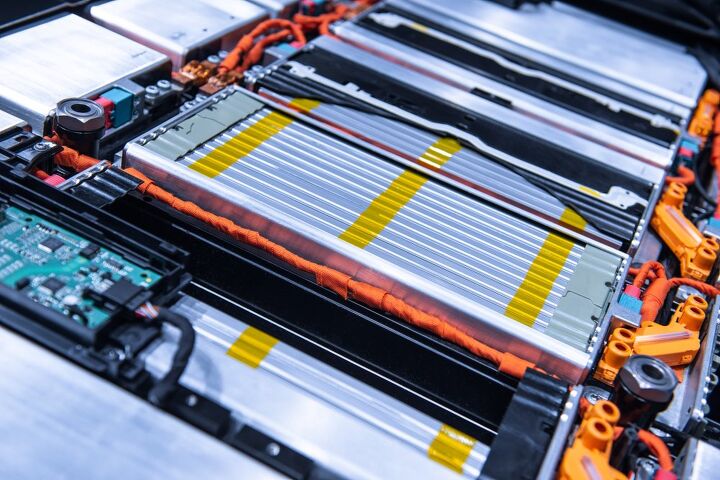
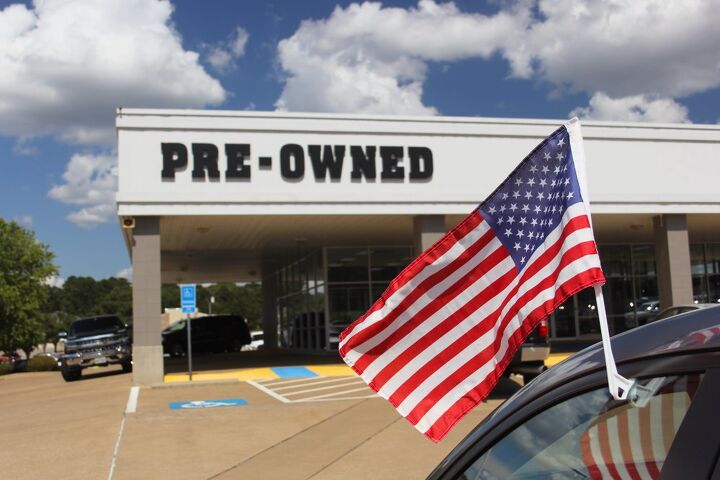

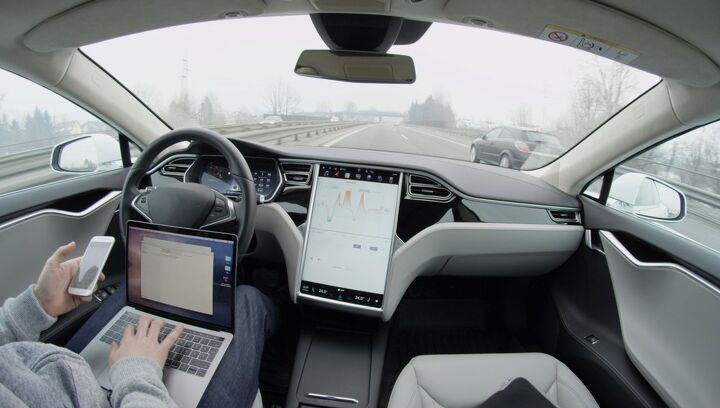


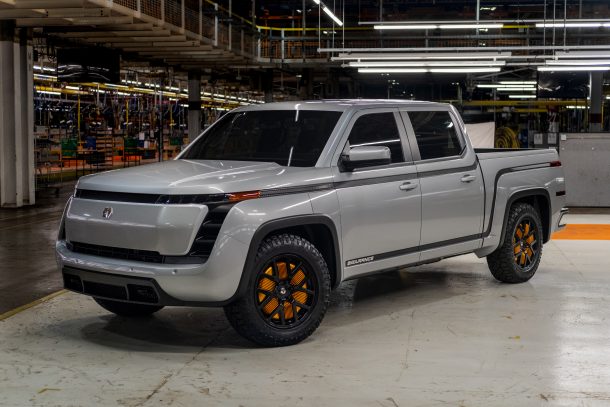
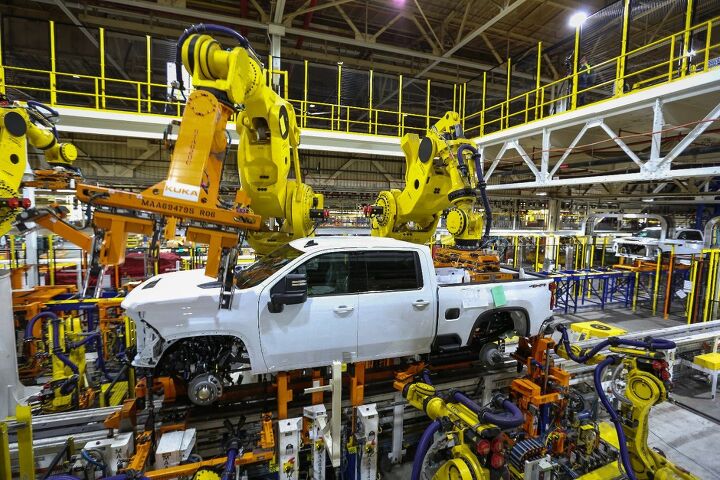














Recent Comments